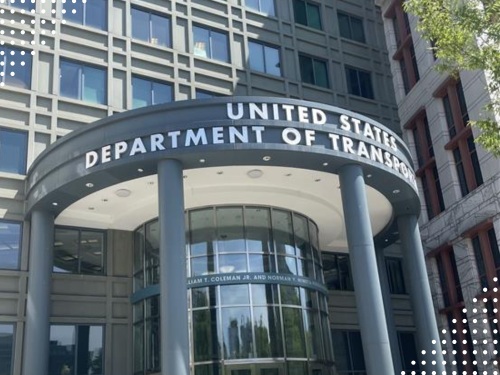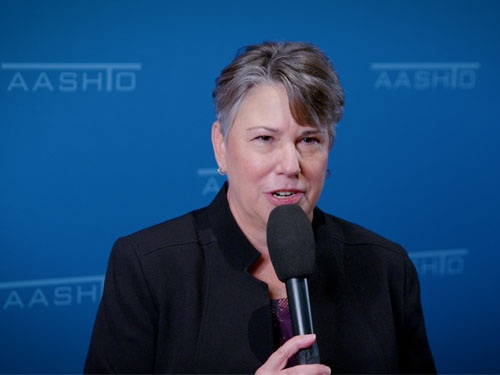The Federal Highway Administration issued $5.6 million in Accelerated Innovation Deployment or AID demonstration program grants to seven state departments of transportation on May 26 speed up their use of innovative traffic, safety and construction practices.
[Above photo by the Michigan DOT]
“With the help of these grants, states can more easily deliver cutting-edge roads, bridges, highways, streets and sidewalks at less cost and in less time while improving mobility and safety for all road users,” noted Stephanie Pollack, FHWA’s acting administrator, in a statement.

The state DOT projects supported by those grants are:
- $741,493 to the Alabama Department of Transportation to help deploy Advanced Geotechnical Methods in Exploration to speed up repairs and reopening a section of U.S. Route 231 closed after a mudslide in 2020.
- $448,300 to the Arizona Department of Transportation to use Composite Arch Bridge System technology to build a durable bridge crossing with reduced road closure times and construction costs.
- $977,398 to help the Michigan Department of Transportation bundle bridge projects on local agency routes.
- $452,000 to help the New Hampshire Department of Transportation install crosswalk visibility enhancements and reconfigure roads for the city of Nashua.
- $1 million to help the Rhode Island Department of Transportation implement the findings of its uncontrolled midblock crossing evaluation plan and install uncontrolled crosswalk enhancements.
- $1 million to the South Dakota Department of Transportation to deploy and evaluate variable speed limits for the first time on two interstate highway corridors.
- $1 million to help the Utah Department of Transportation acquire and use 3-D modeling software, e-Construction, drones and other FHWA-supported technologies to improve project delivery.
The FHWA said it has awarded more than $86.9 million for 117 AID grants to federal, state, local and tribal government agencies since the program launched in February 2014.
 Top Stories
Top Stories
USDOT Makes $1.5B Worth of BUILD Grants Available
December 19, 2025 Top Stories
Top Stories

